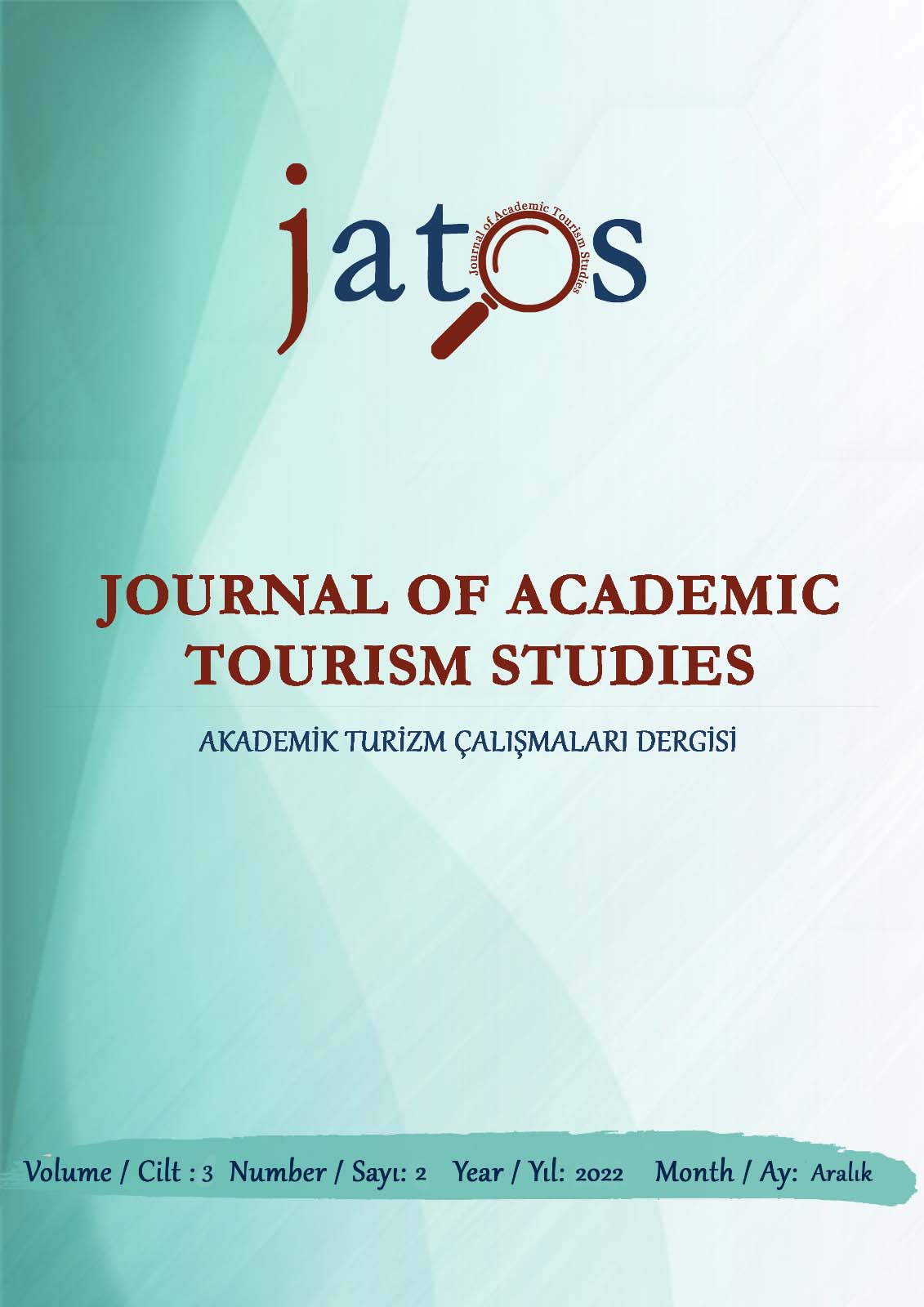Author :
Abstract
Bu çalışma, 2006 yılında kitap olarak basılan ve 8 milyonun üzerinde satış hacmine ulaşan, ardından 2010 yılında sinema filmi olarak vizyona girerek 10 milyondan fazla satılan Ye-Dua et-Sev kitabından hareketle gerçekleştirilmiştir. Yazar Elizabeth Gilbert’in İtalya, Hindistan ve Endonezya’ya yaptığı seyahati ve bu seyahat boyunca deneyimlediği içsel yolculuğuna ilişkin anılarını kaleme aldığı kitabı, ortaya çıkarmış olduğu gastronomik ve turistik deneyimlerden hareketle 2022 yılı turizm trendleri arasında gösterilmiştir. Bu çalışmada sistematik alanyazın derlemesi yönteminden hareketle Ye-Dua et-Sev felsefesinin ortaya çıkışı, turistik seyahatlerdeki yeri ve turizm araştırmaları açısından geleceği ele alınmıştır. Elde edilen derleme bulguları ve Ye-Dua Et-Sev turizm trendinin kavramsal altyapısını oluşturan dönüştürücü turizm yaklaşımından hareketle gelecekteki turizm temelli çeşitli akademik araştırmalar için yeni bir model önerisi sunulmuştur. Sonuç olarak gastronomik deneyim, dönüştürücü turizm deneyimi ve iyi oluş değişkenleri çerçevesinde eşiktelik (Ye), doruk deneyim (Dua Et) ve davranışsal değişiklik (Sev) safhalarını içeren turizm trendinin teorik ve operasyonel çıktılarının tartışılabileceği bir model ileri sürülmüştür.
Keywords
Abstract
This study is based on the book “Eat Pray Love”, which was published as a book in 2006 and reached a sales volume of more than 8 million, then was released as a movie in 2010 and sold more than 10 million. The book, in which the writer Elizabeth Gilbert wrote about her travels to Italy, India and Indonesia and her inner journey she experienced during this trip, has been shown among the tourism trends of 2022, based on the gastronomic and touristic experiences she has revealed. In this study, the emergence of the philosophy of “Eat-Pray-Love”, its place in touristic travels and its future in terms of tourism researches are discussed, based on the method of systematic literature review. In this context, a new theoretical model proposal for future tourism oriented academic research has been suggested based on the transformative tourism approach, which constitutes the conceptual infrastructure of the “Eat-Pray-Love” tourism trend. As a result, a model has been proposed in which the theoretical and operational outputs of liminality (Eat), peak experience (Pray) and behavioral change (Love) can be discussed in the context of gastronomic experience, transformative tourism experience and well-being variables.





